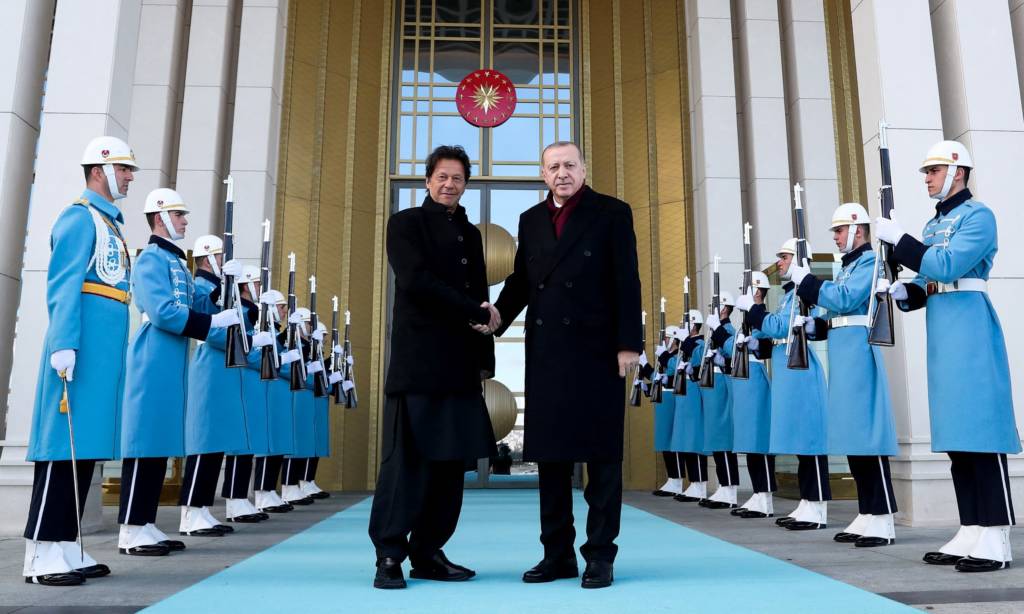The Middle East and its surrounding region have witnessed several conflicts over the past year, including the ongoing Nagorno-Karabakh conflict in South Caucasus, the Yemen Civil War, the Syrian Civil War and the Libyan war. Such wars, many of them ignited by Turkey’s Islamist President Recep Tayyip Erdoğan, have changed the rules of engagement. These wars have reinvigorated the medieval mercenary culture of putting soldiers on sale at an industrial level. Countries like Pakistan and Turkey have been putting soldiers and jihadists on sale in expeditionary wars far away from their country.
While Turkey is employing the low-cost Syrian Jihadists, Islamabad has gone as far as putting its own Army on sale, in face of the ongoing economic crisis in Pakistan. Libya, Kurdish areas, or Idlib in Syria, Nagorno-Karabakh and Yemen, every single theatre of conflict has been dominated by proxies and mercenaries coming from the two Islamist nations.
The use of Syrian Jihadists first came into the picture last year, when Erdoğan decided to launch an offensive into Kurdish-held Northeastern Syria. Turkey used Syrian Jihadists alongside its troops to commit some of the most horrifying human rights violations against Kurdish fighters, who have been instrumental in fighting the Islamic State (ISIS).
It seems that Ankara was so engrossed by the successes of low-cost warfare through Syrian Jihadists that it decided to deploy them in all the wars that Turkey has waged. Therefore, in Libya too, Turkey is using hardened Syrian militants to support the Muslim Brotherhood regime against Haftar’s LNA forces despite a UN arms embargo on Libya.
And now Turkey is using the same tactic in the Nagorno-Karabakh region where Azerbaijan and Armenia are currently engaged in hostilities. Azerbaijan is a Turkish ally, and Ankara has openly supported the Azerbaijani offensive against Armenia. But Turkey is, of course, not using its own military troops to back Azerbaijan. It is using the low-cost Syrian Jihadist proxies to back Azerbaijan on Turkey’s behalf.
According to ORF, the Syrian fighters pressed into service in Nagorno-Karabakh aren’t hardened militants unlike those deployed in Libya. Many of the Syrian fighters engaged in Nagorno-Karabakh belong to normal families and don’t have any prior terror links as such. But this is where medieval mercenary economics kicks in. For these jobless Syrian fighters, the prospect of fighting for Turkey in a third country is too lucrative to reject. And therefore, they are fighting on Ankara’s behalf.
As for Ankara, deploying Syrian fighters is always a better option, no matter how detestable and inhumane it may be. Firstly, Turkey suffers fewer military casualties by sending in Jihadist mercenaries. And secondly, Ankara doesn’t have to spend as heavily on Syrian mercenaries as it would have to spend on regulars if they were sent to war. Therefore, proxy wars boost Turkey’s bandwidth to wage new, Islamist wars.
Anyhow, even if Syrian fighters are being lured on account of their socio-economic conditions, their entry into conflict theatres can be devastating. And now even Nagorno-Karabakh is facing a likely threat of becoming a terror zone. Turkey’s proxy wars are expanding Jihadist terrorism across the Middle East and beyond.
On the other hand, Pakistan, which looks upon Turkey as its godfather has gone a step further. Pakistan doesn’t have foreign mercenaries to use on third countries’ land. So, it has come up with a unique solution and has started putting its own Army troops on sale.
Last year, it was reported that Pakistani ex-Army mercenaries were involved in the Yemen War to fight on Saudi Arabia’s side against the Iran-backed Houthi rebels. The Pakistani mercenaries were led by none other than former Army Chief General Raheel Sharif. Pakistan’s objectives though were somewhat different from Turkish expansionism in the Middle East. Islamabad has been battling an endless economic crisis and, therefore, Pakistan decided to put its so-called security establishment on sale as a quid pro quo for Arab financial help.
This year again, Pakistan is believed to have sent its troops to fight alongside the Turkish military and Azerbaijan Army in Agdam, a town located in the disputed Nagorno-Karabakh region. Moreover, Pakistan’s armed forces have officially stated that they support Azerbaijan’s offensive against Armenia. Going ahead, Islamabad might actually send in troops for Azerbaijan’s help to please Ankara.
Pakistan and Turkey are thus leading the brutal, medieval mercenary culture at the expense of peace and security in several conflict zones in and around the Middle East.
